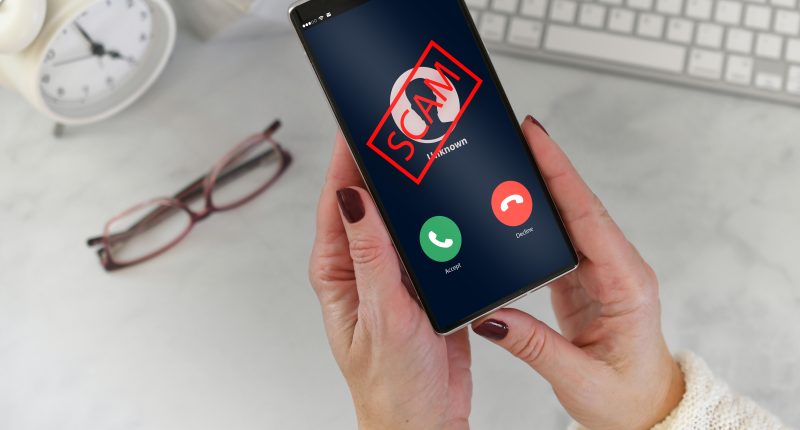SMARTPHONE users have been urged to avoid answering calls marked as ‘spam’ or risk their data and money getting stolen.
Experts from Keeper Security warned about the dangers of phone scams in a recent blog post.
“If you accidentally answer a spam call, scammers know your number is connected to a real person and can target you with more spam calls,” the cybersecurity company said.
WHAT ARE PHONE SCAMS?
At its most basic, phone spam comprises bad actors trying to illegally acquire information or money from a victim over the phone.
They are typically made to a large number of people from an unknown source that claims to be from a person or company they are not.
“These targeted spam calls will try to trick you into giving up your personal information which allows cybercriminals to steal your money, your identity, and even your voice,” Keeper Security said.
Read more on scammers
“You should avoid answering spam calls to help prevent cybercriminals from trying to steal your personal information,” it added.
HOW TO IDENTIFY SPAM CALLS
There are a few sure-fire signs that you are getting a call from a scammer:
The first is your phone displaying a “spam/scam likely” warning. If you see this, don’t pick up the phone.
Another sign of a spam caller is if the message appears to be pre-recorded.
Most read in News Tech
However, it’s important to note that many legitimate businesses such as healthcare providers use pre-recorded messages.
If a phone caller asks you to provide personal information, it’s likely a spam caller.
“They will try to trick you into giving up your personal information such as your Social Security number,” Keeper Security said.
“However, legitimate businesses should already have your personal information on file and would never ask for it over the phone.”
One of the biggest signs of a scam phone call is if the message sounds urgent.
Scammers often utilize this tactic to place pressure on the receiver and get them to give up sensitive information.
If you receive a phone call with a deal that sounds too good to be true, it likely is.
“Some scammers will portray themselves as a business trying to sell a great deal or trick you into thinking you won something over the phone to hook you in and rip you off,” Keeper Security warned.
Lastly, if someone asks you for payment or money over the phone, it’s most likely a scammer.
“Cybercriminals will often impersonate banks, debt collectors or other large companies,” Keeper Security explained.
“They will call you regarding some sort of unpaid charge you need to pay to avoid jail time or prevent losing your account.”
HOW TO STAY SAFE
Below we have shared several expert-recommended tips on how to stay safe.
- Don’t answer calls from unknown numbers.
- If you do answer a call from an unknown number, be very cautious about what information you give out.
- Register your phone number with the National Do Not Call Registry.
- Use a call-blocking app.
- Be aware of the latest scams.
READ MORE SUN STORIES
If you do get scammed, here are some things you should do:
- Report the scam to the Federal Trade Commission (FTC).
- Place a freeze on your credit report.
- Change your passwords for all of your online accounts.
This post first appeared on Thesun.co.uk










